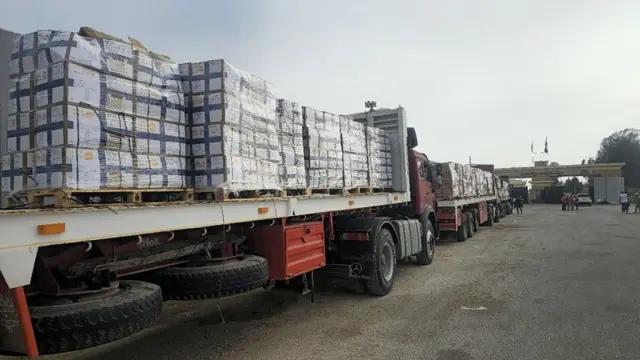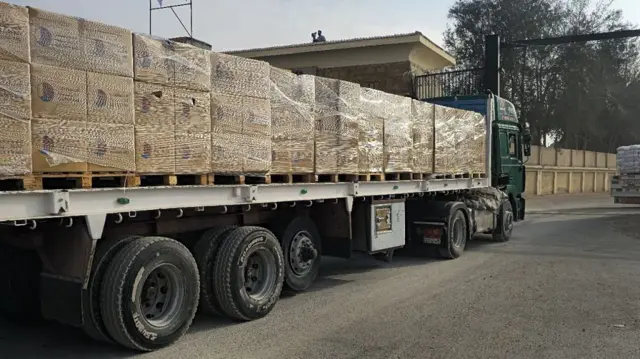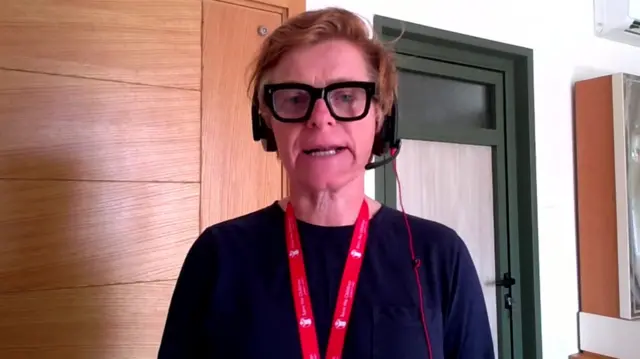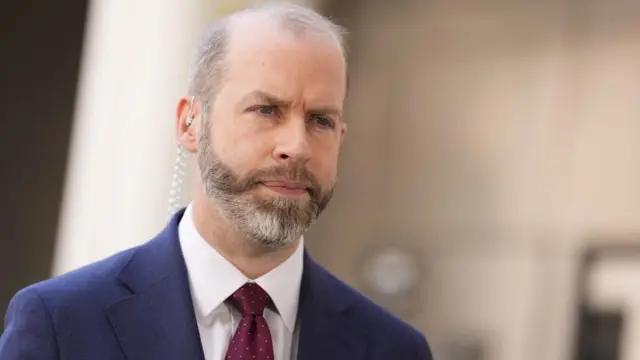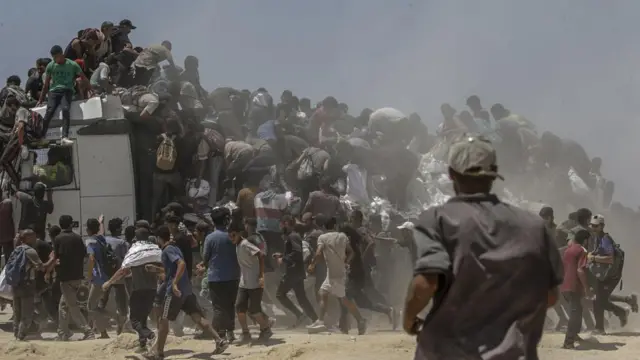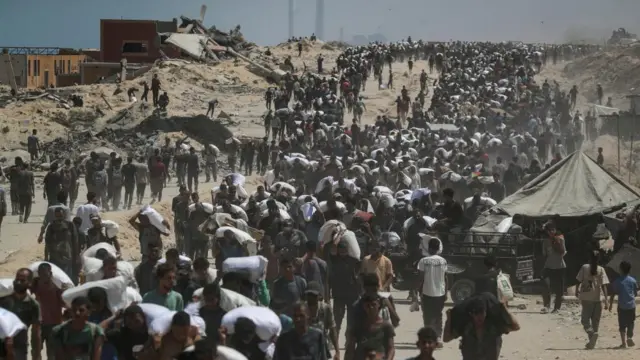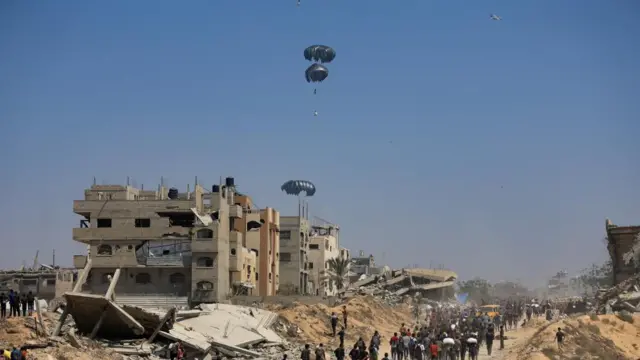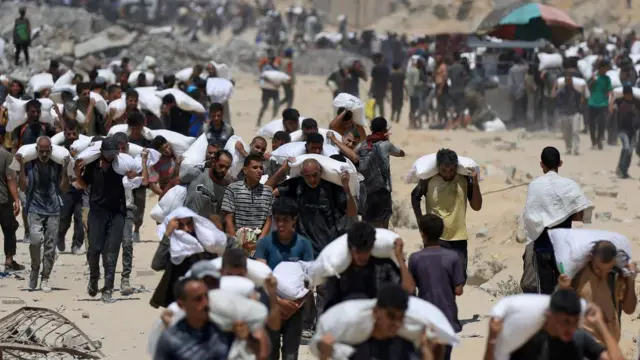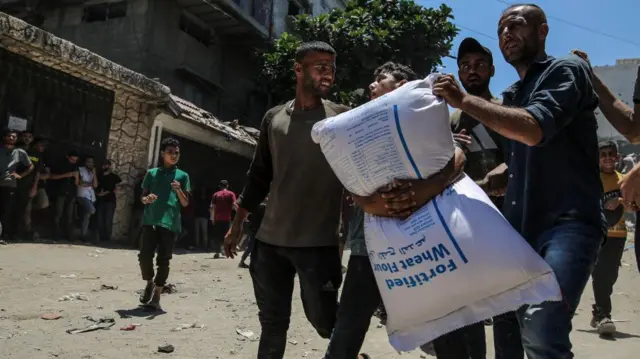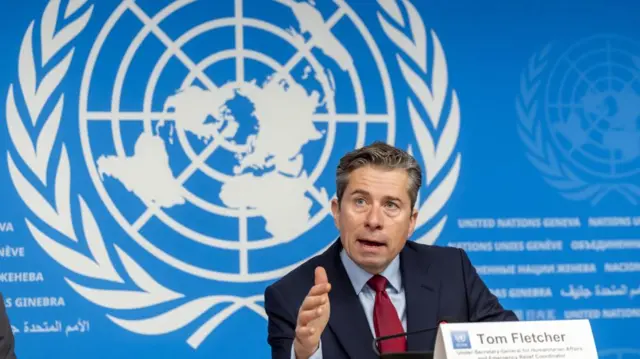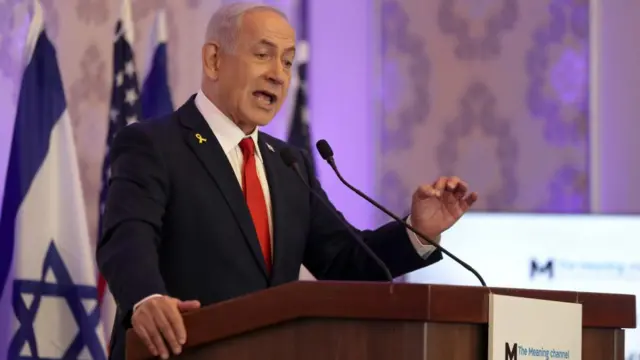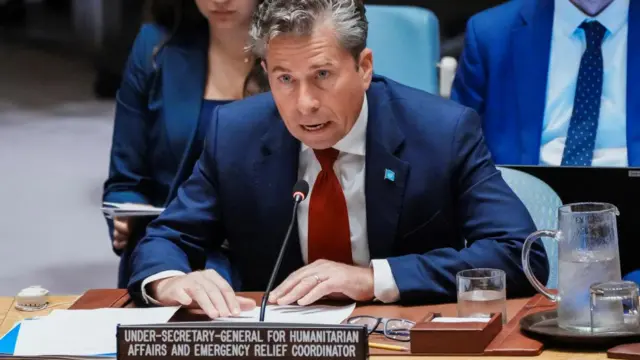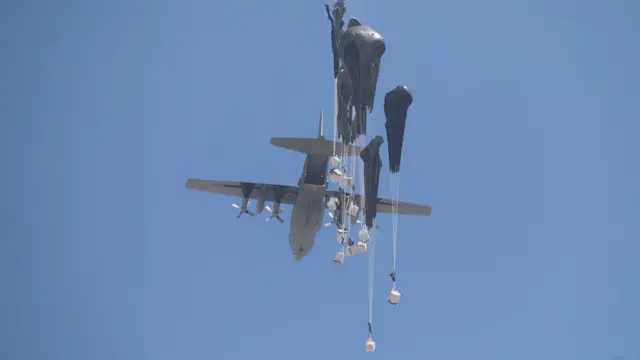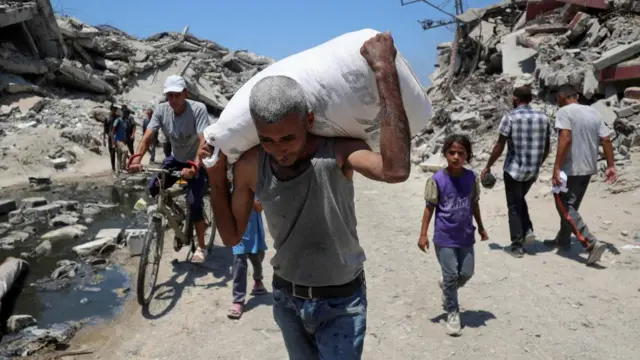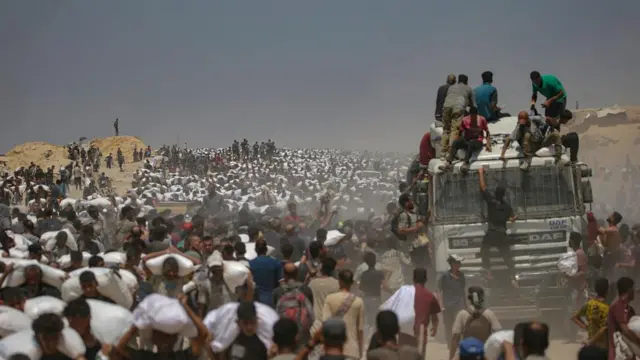People are 'facing death' to seek aid, Gazan tells BBCpublished at 11:35 BST 28 July
 Sophie Williams
Sophie Williams
Reporting from Jerusalem
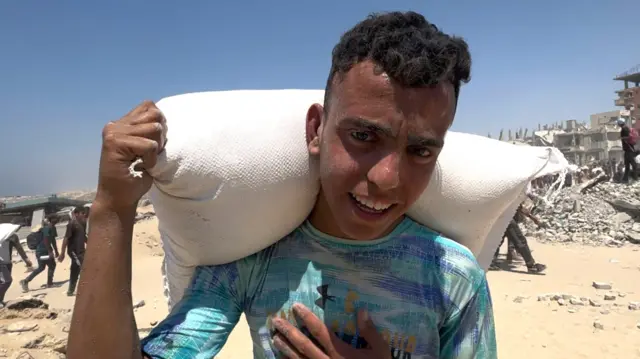
Salah Mkhesi from Gaza City was among those trying to get aid on Sunday.
The BBC’s freelance reporters met him in northern Gaza after he managed to secure a bag of flour from an aid truck.
“We’re here to get aid for our families. People come here facing death,” he said. “Children are going to sleep without eating or drinking water. How long will this situation continue? Find a solution for us.”
Aid has been coming into the area via trucks and air drops from planes.
When asked about the plane drops he said he “completely rejected” them.
“I reject it because it is dangerous. It kills people. I totally reject it.”
